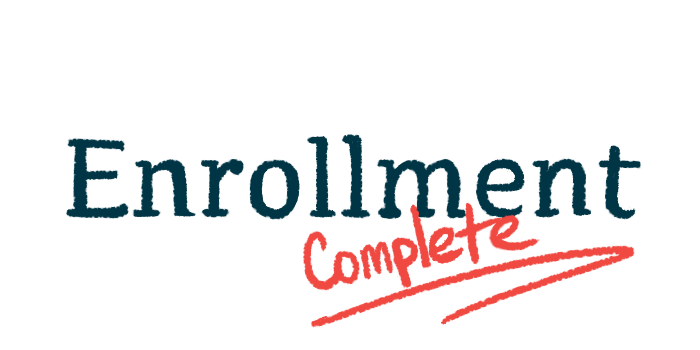Patient enrollment now complete in DNL343 arm of HEALEY ALS trial
DNL343 is 7th treatment regimen to be fully enrolled in platform trial
Written by |

Patient enrollment is now complete in an arm of the HEALEY ALS platform trial that’s testing Denali Therapeutics‘ DNL343 for the treatment of adults with amyotrophic lateral sclerosis (ALS).
The HEALEY platform trial (NCT04297683), led by the Sean M. Healey & AMG Center for ALS at Massachusetts General Hospital (MGH), in Boston, is the first study to ever simultaneously test multiple experimental therapies for the neurodegenerative disease. The goal of the platform trial is to both reduce costs and accelerate the development of effective treatments for ALS.
DNL343 becomes the seventh treatment regimen to be fully enrolled since the launch of HEALEY ALS in 2020. The sixth arm of the trial, testing ABBV-CLS-7262 — an investigational therapy developed by Calico Life Sciences and AbbVie — completed its patient enrollment last month. Ordered alphabetically, DNL343 has been dubbed Regimen G in the platform trial, while ABBV-CLS-7262 is known as Regimen F.
“The conclusion of enrollment for DNL343 signifies a pivotal step forward in our research to find effective treatments for ALS,” Merit Cudkowicz, MD, HEALEY’s principal investigator and sponsor, and director of the Healey & AMG Center at MGH, said in a press release.
“We look forward to evaluating the effects of this investigational product and sharing our findings with the ALS community,” Cudkowicz added.
Same criteria used in HEALY ALS trial for DNL343 and ABBV-CLS-7262
DNL343 and ABBV-CLS-7262 are oral therapy candidates that both work by activating a protein called eIF2B to lower the activity of a molecular pathway called the integrated stress response, or ISR.
In normal conditions, this pathway is turned on when cells are under stress, and returns to normal after the stressful event is resolved. But in ALS it’s believed that continuous activation of ISR in nerve cells may lead to the formation of toxic protein clumps in nerve cells, promoting their death.
By activating eIF2B, the therapies have been shown to effectively put brakes on the ISR pathway, restoring normal protein synthesis and helping cells clear out the toxic clumps. Both therapies have been tested in ALS patients with positive findings.
DNL343’s (NCT05842941) and ABBV-CLS-7262’s (NCT05740813) Phase 2/3 arms of HEALEY were both designed to enroll adults with ALS and randomly assign them to receive either the experimental therapy or a placebo.
Because each treatment arm uses the same eligibility criteria, data from patients given each treatment can be compared with data from those given a placebo across all arms of the study. This shared placebo group allowed most participants to be given DNL343 or ABB-CLS-7262 in their respective arm, while only one-third received a placebo.
In DNL343’s arm, patients are receiving the therapy at a specified dose once daily for six months, while those in ABBV-CLS-7262’s arm are being given one of varying doses of the medication, also once daily for six months.
The main goal of each treatment arm is to compare the therapy’s effect on survival and disease progression, as measured by the ALS Functional Rating Scale Revised (ALSFRS-R), after six months.
We are grateful for our ALS participants and their families for their commitment to research and investigation of DNL343 and other experimental products. … The robust research we conduct would not be possible without the partnership of our patient community.
The trial’s other regimens have included Seelos Therapeutics SLS-005, tested as Regimen E (NCT05136885), and Prilenia Therapeutic’s pridopidine, tested as Regimen D (NCT04615923). UCB’s zilucoplan was named Regimen A (NCT04436497), while Biohaven Pharmaceuticals’ verdiperstat was Regimen B (NCT04436510) and Clene Nanomedicine’s CNM-Au8 was Regimen C (NCT04414345).
So far, zilucoplan, verdiperstat, and SLS-005 have been discontinued due to lack of effectiveness. But CNM-Au8 and pridopridine have been selected to move forward to Phase 3 trials following positive results in HEALEY.
“We are grateful for our ALS participants and their families for their commitment to research and investigation of DNL343 and other experimental products,” said Sabrina Paganoni, MD, PhD, and Suma Babu, physician investigators at the Healey & AMG Center for ALS at MGH who are co-leading the DNL343 arm.
“Along with our academic collaborators, founders, industry partners and benefactors of the platform trial, the robust research we conduct would not be possible without the partnership of our patient community,” they added.






